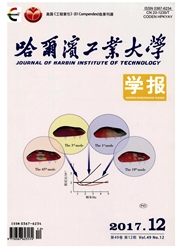

 中文摘要:
中文摘要:
为解决静态代理模型非线性结构优化效率、精度低的问题,采用最小二乘支持向量回归机(LSSVR)模型进行T型管液压成形加载路径自适应多目标优化研究.用一个数值算例说明本文方法的有效性,以管与背压冲头的接触面积最大及管的最大减薄率最小为优化目标,以接触面积大于对标仿真值、最大减薄率小于实验值、高度大于实验值为约束条件进行多目标优化设计.采用拉丁超立方体设计构造初始支持向量回归模型,用自适应法将每次迭代中获得的额外取样点添加到重建的支持向量回归机模型,得到帕累托最优解集.用理想点法,选择一个最优妥协解以供工程师选用.在成形高度没有变差的情况下,自适应多目标优化结果的管与被压冲头接触面积比实验值提高了32.42%,最小厚度比实验值增加了14.97%.表明自适应迭代LSSVR模型能够在少量样本下保证优化设计精度和计算效率.
 英文摘要:
英文摘要:
To improve the accuracy and efficiency of the using of static surrogate model for nonlinear structure optimization, the adaptive iteration least square support vector regression ( LSSVR ) is introduced to research the optimal solution of load path in the T-shape tube hydroforming process. The maximum contact area of the tube and counter punch and the minimum thinning ratio of the thickness are take as the optimization objective, and those the contact area is greater than the simulation value, the maximum thinning ratio of the thickness is smaller than the experimental value and the protrusion height is greater than test values, are select as constraint conditions. The Latin hypercube design is employed to construct the initial support vector regression model, and some extra sampling points are added to reconstruct the support vector regression model to obtain the Pareto optimal solution set during each iteration. Finally the ideal point is used to obtain a compromise solution from the Pareto optimal solution set for the engineers. The contact area of the most satisfactory solution increases 32.42%and the minimum thickness increases 14.97% compared with the experimental results when the protrusion height is not changing worse. The results show that the adaptive iteration LSSVR model can ensure the accuracy and efficiency of the optimization design in a small amount of samples.
 同期刊论文项目
同期刊论文项目
 同项目期刊论文
同项目期刊论文
 The multi-objective robust optimization of the loading path in the T-shape tube hydroforming based o
The multi-objective robust optimization of the loading path in the T-shape tube hydroforming based o Effect of cerebrospinal fluid modeled with different material properties on a human finite element h
Effect of cerebrospinal fluid modeled with different material properties on a human finite element h 期刊信息
期刊信息
